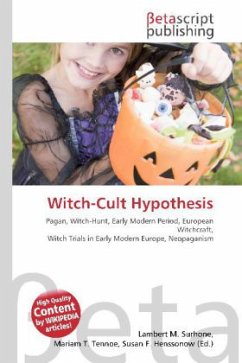High Quality Content by WIKIPEDIA articles! The word witch derives from the Old English nouns "sorceress, witch". The word's further origins in Proto-Germanic and Proto-Indo-European are unclear. The verb wiccian has a cognate in Middle Low German wicken (attested from the 13th century, besides wichelen). The Icelandic Vikti or Vikta. The exact etymology of wicce is problematic. The OED states that the noun is "apparently" deverbal (derived from wiccian), but for the verb merely states that it is "of obscure origin"; Grimm, Deutsches Wörterbuch connect the "Ingvaeonic word" wikk?n with Gothic weihs "sacred" (Proto-Indo European (PIE) weik- "to separate, to divide", probably via early Germanic practices of cleromancy such as those reported by Tacitus.








